7 Best (SHORTEST) BSN-to-DNP Programs (Online & Campus-Based)
Written By: Darby Faubion, RN, BSN, MBA
Are you interested in assuming leadership roles in healthcare administration, healthcare education, or the delivery of clinical care within a medical practice setting? A DNP will prepare you to keep abreast of the latest, most significant healthcare industry trends. With one of the shortest BSN-to-DNP programs, you can become a nurse practitioner or a clinical nurse specialist as an advanced practice RN in three years or less. As a DNP, you’ll be at the very top of the nursing pay scale and have your pick of employment opportunities. How can you find out what are the best fastest BSN-to-DNP programs? We’ve done the work for you by assembling this list of the 7 best shortest (campus-based and online) BSN-to-DNP programs.
What are the Best Shortest (Campus-Based And Online) BSN-to-DNP Programs in the Nation?
(Based on our Ranking Methodology, the following are the 7 best shortest BSN-to-DNP programs. The following list includes both campus-based and online shortest BSN-to-DNP programs. You can complete these programs in 32 months or less.)1. Emory University - Atlanta, GA
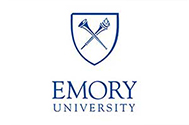
Specialties Offered: Adult-Gerontology Acute Care Nurse Practitioner, Adult-Gerontology Primary Care Nurse Practitioner, Family Nurse Practitioner, Pediatric Acute Care Nurse Practitioner, Pediatric Primary Care Nurse Practitioner, Psychiatric Mental Health Nurse Practitioner, and Women’s Health Gender Related Nurse Practitioner
Program Length: Adult-Gerontology Acute Care Nurse Practitioner (2.5 Years), Adult-Gerontology Primary Care Nurse Practitioner (2.5 Years), Family Nurse Practitioner (2.5 Years), Pediatric Acute Care Nurse Practitioner (2.5 Years), Pediatric Primary Care Nurse Practitioner (2.5 Years), Psychiatric Mental Health Nurse Practitioner (2.5 Years), and Women’s Health Gender Related Nurse Practitioner (2.5 Years)
Program Details: If you are a registered nurse who wants to earn a doctorate and are seeking the best shortest BSN-to-DNP programs, Emory University has some excellent options! The post-baccalaureate DNP program admits students in the fall of each year. At Emory, the programs are designed with a hybrid learning format combining synchronous and asynchronous online learning, classroom instruction, and in-person clinical practicum experiences.
With many specialty options to choose from, you will complete between 74 and 86 credits, depending on which concentration you pursue. The curriculum plans include MSN and DNP core courses such as Advanced Physiology and Pathophysiology, Evidence-Based Practice, and Interprofessional Partnerships. After completing core courses, your curriculum plan will transition to include coursework relevant to your chosen specialty.
In addition to classes designed around your interests and specialty, your program includes 1,080 to 1,140 practicum hours. Practicum experiences are tailored to give you diverse experiences in various healthcare settings, providing care to the patient population you plan to serve. The university arranges clinical sites and preceptors to ensure you have opportunities to learn from the most experienced professionals.
How Fast Can You Complete This Program: All specialties of the accelerated BSN-to-DNP program at Emory University can be completed in two and a half years.
Admission Requirements: Admission to the accelerated BSN-to-DNP program at Emory University requires you to have a Bachelor of Science in Nursing degree from an accredited nursing program and an active, unrestricted license to practice as a registered nurse in your state of residence. You must complete an application for admission and submit a $50 application fee.
All candidates must provide official transcripts from all post-secondary schools attended, a curriculum vitae or professional resume, a Personal Statement, and two to three professional references. Candidates who wish to pursue the Adult-Gerontology Acute Care NP or Pediatric Acute Care NP pathway must have at least one year of professional nursing experience as a registered nurse in an acute/critical care setting.
Why Choose This Program
• As a student at Emory University, you will engage in clinical learning experiences at some of the nation’s top hospitals and healthcare systems.• Emory University boasts nationally renowned faculty who are experts in their fields, which means you will learn from the most experienced nurses in the field.
• Graduates of Emory University's BSN-to-DNP program have excellent job placement ratings. Most graduates report having employment within three months of graduation, and many receive job offers while still enrolled in the program.
2. The University of Arizona - Tucson, AZ
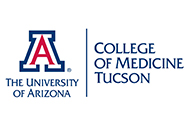
Specialties Offered: Adult-Gerontology Acute Care Nurse Practitioner (AGACNP), Executive Health Systems Leadership (EHSL), Family Nurse Practitioner (FNP), Pediatric Nurse Practitioner Primary Care (PNP-PC), and Psychiatric Mental Health Nurse Practitioner (PMHNP)
Program Length: Adult-Gerontology Acute Care Nurse Practitioner (AGACNP) (2.5 Years), Executive Health Systems Leadership (EHSL) (2.5 Years), Family Nurse Practitioner (FNP) (2.5 Years), Pediatric Nurse Practitioner Primary Care (PNP-PC) (2.5 Years), and Psychiatric Mental Health Nurse Practitioner (PMHNP) (2.5 Years)
Program Details: The University of Arizona offers one of our featured best fast-track BSN-to-DNP programs with five specialty options. At U-A, you will advance from a bachelor’s degree in nursing to a clinical doctorate and be prepared to practice at the highest level of clinical practice in nursing. Whether you want to provide care to adult or pediatric patients and families, work in the psychiatric mental health field, or take on an executive leadership role, the University of Arizona has a program for you!
The program admits students once per year in the fall. The accelerated BSN-to-DNP programs feature a hybrid learning model, which utilizes a combination of online didactic coursework, campus-based intensives, and in-person practicums and clinical placements.
The curriculum plans require you to complete between 50 and 70 credits, depending on which specialty you choose to study. You will begin your program by taking classes, including Evaluation Methodologies for Safety and Quality Improvement, Philosophy and Theory for the DNP, and Statistical Inference for Evidence-Based Practice. You will then take specialty-relevant classes, which may include Adult-Gerontology Traumatic Injury and Emergent Illness, Healthcare Informatics: Theory and Practice, Pediatric Health Assessment, or Advanced Family Psychiatric Mental Health Nursing.
All students enrolled in the short BSN-to-DNP programs at the University of Arizona complete a minimum of 1,000 post-baccalaureate clinical hours, in accordance with The Essentials of Doctoral Education for Advanced Nursing Practice (The Essentials). Clinical placements for nurse practitioner specialties are arranged with preceptors and administrators by program and clinical faculty. The university prioritizes arranging clinical placements in your geographical area when possible.
How Fast Can You Complete This Program: Each pathway for the fast-track BSN-to-DNP program at the University of Arizona is designed to be completed in two and a half years with full-time enrollment.
Admission Requirements: Admission to the fast-track BSN-to-DNP program is competitive. You must apply to the University of Arizona Graduate College to be admitted as a graduate student and then to the College of Nursing via NursingCAS to be considered for admission to the DNP program.
Candidates for the program must have a Bachelor of Science in Nursing degree earned from a regionally accredited institution and have a 3.0 or higher grade point average for the last 60 credits of nursing courses they completed. You must have a current, unencumbered RN license and have one year or more full-time experience working as a registered nurse.
You must submit transcripts from any college or university you have attended and a reference from a professional college from a supervisor or nursing faculty. Additionally, you must submit a curriculum via using the DNP Applicant CV Template.
Why Choose This Program
• U.S. News & World Report ranks the University of Arizona in its 2023-2024 rankings as a top program in its Best Nursing Schools: Doctor of Nursing Practice category.• Graduates of the University of Arizona’s fast-track BSN-to-DNP programs have excellent national certification exam pass rates! High pass rates are a reflection of the strong education and preparation students receive in the programs.
• The University of Arizona ensures all DNP students have extensive clinical time and experiences to prepare them for their roles as a Doctor of Nursing Practice in their chosen specialty.
3. University of Massachusetts Boston - Boston, MA
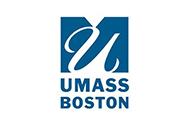
Specialties Offered: Adult-Gerontology Nurse Practitioner and Family Nurse Practitioner
Program Length: Adult-Gerontology Nurse Practitioner (2 Years) and Family Nurse Practitioner (2 Years)
Program Details: The University of Massachusetts at Boston offers two of the nation’s best accelerated BSN-to-DNP programs. You can choose to specialize as an Adult-Gerontology NP or Family Nurse Practitioner.
The fast-BSN-to-DNP program combines online and campus learning experiences along with clinical practicum opportunities. The first portion of the program, the MS component, features online and on-campus coursework. Coursework for the DNP component is exclusively online.
Both BSN-to-DNP pathways require you to complete ten courses focused on quality improvement, population health, leadership and management, informatics, health policy, evidence-based practice, and project implementation, synthesis, and dissemination. Then, you will complete coursework tailored to the specialty you choose.
The Adult-Gerontology and Family Nurse Practitioner programs each feature a 70-credit hour curriculum. After completing 48 credits and 665 clinical hours, an MSN will be conferred, and you may take the national certification examination to become a nurse practitioner. The remaining credits, clinical hours, and DNP Scholarly Project follow.
In addition to completing at least 1,065 clinical practicum hours, the program culminates with a DNP seminar project experience. Guided by faculty throughout the program, you will complete the DNP seminar project to demonstrate your ability to analyze and guide changes in the healthcare delivery system.
How Fast Can You Complete This Program: The Adult-Gerontology and Family Nurse Practitioner fast BSN-to-DNP programs at UMass Boston are formatted to be completed in two years.
Admission Requirements: To be considered for admission to the program at the University of Massachusetts-Boston, you must have a bachelor’s degree in nursing from an accredited nursing program and possess a valid, unrestricted RN license. You must provide official transcripts, two professional recommendations, a Personal Statement, and a current resume or curriculum vitae. To progress to the DNP component of the program, you must obtain advanced practice licensure in your state of residence with national certification.
Why Choose This Program
• UMass Boston reports high retention rates among students who enroll in the BSN-to-DNP program. This is a plus because retention rates are associated with student satisfaction and success.• At the University of Massachusetts Boston, you will learn alongside a diverse community of students from all walks of life, all with the same goals in mind.
• UMass Boston utilizes InPlace Smart Placement Solutions, a cloud-based software system that allows you to create and track your own clinical placements and hours. This technology helps you take control of your education and experiences as you collaborate with faculty and preceptors.
4. University of Mary - Bismarck, ND
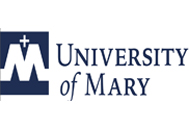
Specialties Offered: Family Nurse Practitioner
Program Length: 2.7 Years
Program Details: The Doctor of Nursing Practice- Family Nurse Practitioner program at the University of Mary is one of the shortest BSN-to-DNP programs in the United States, making it an excellent choice for anyone who wants to transition to a doctoral degree in nursing in a short time. The program utilizes a blended learning format consisting primarily of online learning and including week-long institutes on campus. The on-site portion of the program consists of face-to-face encounters during select semesters plus the final week of the last semester of the program. The remaining classroom instruction is online.
The FNP program is an 86-credit hour pathway. In addition to general specialty courses, such as Health Promotion and Clinical Prevention and Common and Chronic Health Management, you will study Resilient Nursing Leadership, Evidence-Based Practice and Strategic Healthcare Decision Making, and Healthcare Law and Policy.
Program faculty will collaborate with you to arrange placement for clinical practicum experiences and identify appropriate preceptors. When possible, clinical requirements are met in or near your home community.
How Fast Can You Complete This Program: You can earn a post-baccalaureate DNP specializing as a Family Nurse Practitioner in as little as 2.7 years at the University of Mary.
Admission Requirements: To apply to the short BSN-to-DNP program at the University of Mary, you must complete an application for admission to the graduate school and possess a BSN from an accredited nursing program. You must have an undergraduate grade point average of 2.75 or higher to be considered for admission. All candidates must submit an admission essay and two letters of professional or academic recommendation and may be asked to participate in an admissions interview with program faculty.
Why Choose This Program
• The University of Mary has 30 years of experience educating doctoral nursing students and is dedicated to excellence in clinical nursing preparation.• As a student in the BSN-to-DNP program at the University of Mary, you will become part of a group of students who become nursing leaders and change agents, as demonstrated by the success of previous graduates.
• The University of Mary is a military-friendly school, offering special incentives and assistance to military veterans, active-duty service men and women, and their families.
5. George Mason University - Fairfax, VA
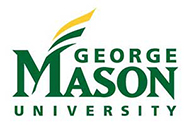
Specialties Offered: Adult Gerontology Nurse Practitioner and Family Nurse Practitioner
Program Length: Adult Gerontology Nurse Practitioner (2 Years) and Family Nurse Practitioner (2 Years)
Program Details: George Mason University offers two fast-track BSN-to-DNP programs, the Adult-Gerontology Nurse Practitioner and Family Nurse Practitioner BSN-to-DNP programs. The programs admit students in the fall and spring semesters annually and feature a blended, hybrid learning format combining classroom and online learning as well as in-person clinical experiences.
Both BSN-to-DNP pathways include core courses in theory, ethics, statistics, and healthcare delivery systems. Additionally, you will study advanced-practice competency courses as relevant to your chosen concentration and doctoral-level courses in administration, informatics, policy, and evidence-based practice.
The Adult-Gerontology and Family Nurse Practitioner accelerated BSN-to-DNP programs each feature a 72-credit hour curriculum and require students to complete 1,000 precepted clinical hours. In addition to didactic instruction and clinical practicums, you will complete two practice inquiry project courses through which you will complete a DNP Scholarly Project. You will work closely with clinical faculty and your practice inquiry project committee to meet requirements for clinical practicums and your DNP Project.
How Fast Can You Complete This Program: Both the Adult-Gerontology and Family NP BSN-to-DNP programs at George Mason University take two years to complete.
Admission Requirements: Admission criteria for the accelerated BSN-to-DNP program at George Mason University include the following. You must submit a George Mason Application for Graduate Study and pay the application fee. A copy of your official transcripts from any college or university you attended is required and should reflect a 3.0 or higher undergraduate GPA. Additionally, you must provide a copy of your current, active RN license, any certifications, a professional resume, two letters of recommendation, and an Expanded Goals Statement. Some candidates are asked to participate in an admissions interview, as determined by admission and program faculty.
Why Choose This Program
• The George Mason University School of Nursing provides a number of scholarships to students of all levels, including DNP candidates.• At George Mason University, you will collaborate with nationally- and internationally-recognized scholars and faculty dedicated to meeting the needs of a diverse student body.
• In the accelerated BSN-to-DNP program, you will have unique opportunities to educate and treat high-risk, underserved populations through the university’s Mason and Partners clinics.
6. University of Miami - Coral Gables, FL
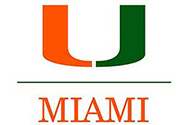
Specialties Offered: Adult-Gerontology Acute Care Nurse Practitioner, Adult-Gerontology Primary Care Nurse Practitioner, and Family Nurse Practitioner
Program Length: Adult-Gerontology Acute Care Nurse Practitioner (2 Years), Adult-Gerontology Primary Care Nurse Practitioner (2 Years), and Family Nurse Practitioner (2 Years)
Program Details: The University of Miami is home to another of our featured fastest BSN-to-DNP programs. With options to specialize as an Adult Gerontology Acute or Primary Care Nurse Practitioner or Family Nurse Practitioner, BSN-prepared nurses seeking a doctorate and career caring for families or adult patients, there are options at the university. The program admits students each fall semester.
The Adult-Gerontology Acute Care and Primary NP pathways feature 70- and 69-credit hour curriculum plans. The Family Nurse Practitioner pathway requires you to complete 71 credits. The first year of each pathway consists of advanced nursing coursework with classes, including Population-Based Health and Healthcare Disparities, Advanced Health Assessment and Diagnostic Reasoning, and Applied Biostatistics for Nursing Practice. The final year of the program includes doctoral-level coursework and specialty-relevant classes.
Regardless of your chosen specialty, you will begin clinicals in the second semester of the program and continue clinical training throughout the remainder of the program. By the time you graduate, you will have a minimum of 1,176 clinical practice hours. Clinical experiences are arranged by program faculty in approved sites with program-approved preceptors. When possible, accommodation to complete clinicals in your hometown will be made.
How Fast Can You Complete This Program: The University of Miami offers three specialty concentrations for its accelerated BSN-to-DNP program, each of which takes an average of two years to complete.
Admission Requirements: To be considered for admission to the fast-track BSN-to-DNP program at the University of Miami, you must have a Bachelor of Science in Nursing degree earned from an NLN- or CCNE-accredited program. You must provide official transcripts from any post-secondary school you attended, have a cumulative undergraduate GPA of 3.0 or higher, and complete an Introductory Statistics course with a grade of "B" or higher.
All candidates must provide three letters of recommendation, with at least one coming from an academic source. Additionally, you must submit a copy of your unrestricted RN license in the state of Florida or the state where clinicals will occur, a current CV or resume, and a Statement of Purpose.
Why Choose This Program
• Graduates of the University of Miami's BSN-to-DNP programs have excellent track records of scoring well on national certification exams among first-time testers.• At the University of Miami, you will have a dedicated advisor to assist you on your journey to earning your degree.
• The University of Miami has received several accolades, including Best Nursing Schools for BSN, MSN, and DNP as ranked by U.S. News, and for receiving NIH Funding in excess of $6 million to support nursing education!
7. Columbia University - New York, NY
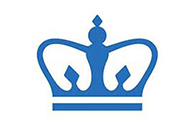
Specialties Offered: Adult-Gerontology Acute Care Nurse Practitioner Program (AG-ACNP), Family Nurse Practitioner (FNP), Pediatric Primary Care Nurse Practitioner (PPCNP), and Psychiatric Mental Health Nurse Practitioner (PMHNP)
Program Length: Adult-Gerontology Acute Care Nurse Practitioner Program (AG-ACNP) (2.5 Years), Family Nurse Practitioner (FNP) (2.5 Years), Pediatric Primary Care Nurse Practitioner (PPCNP) (2.5 Years), and Psychiatric Mental Health Nurse Practitioner (PMHNP) (2.5 Years)
Program Details: If you are searching for accelerated BSN-to-DNP programs but are not sure of a specialty concentration you wish to pursue, Columbia University has some excellent options. The university offers some of the best programs in the nation. Students are admitted to the program once per year in the summer semester.
Each specialty pathway features a cohort model and includes classroom learning, supervised practice, peer-reviewed work, supervised clinical practice, portfolio development, and a final intensive practicum. Depending on the concentration you choose, you will complete between 80 and 94 credits. Courses include lectures, laboratory simulations, clinicals, and a final intensive practicum.
How Fast Can You Complete This Program: The fast BSN-to-DNP program at Columbia University is designed to be completed in two and a half years, pursuing a full-time schedule.
Admission Requirements: Candidates seeking admission to the BSN-to-DNP accelerated programs at Columbia University must have a BSN degree earned at an accredited nursing program and a New York State RN license or eligibility. Applicants must provide three letters of recommendation, a resume or curriculum vitae, official college transcripts from all post-secondary schools, and complete a written essay, video essay, and timed writing sample.
Why Choose This Program
• Columbia University is ranked by U.S. News & World Report as one of the top schools in its 2023-2024 Best Nursing Schools: Doctor of Nursing Practice category.• At Columbia University, you will learn from nationally- and world-renowned award-winning faculty.
• Columbia University is known as one of the world’s preeminent centers for nursing research, education, and practice.
 Darby Faubion, RN, BSN, MBA
Darby Faubion, RN, BSN, MBA
Darby Faubion is a nurse and allied health instructor with over 20 years of clinical experience. Her work history includes clinical experience in pediatrics, mental health, addiction and behavioral disorders, geriatrics, wound management, and communicable disease. Darby has worked in hospitals, long-term care facilities, and home health and hospice agencies. Darby also has experience as a nursing and allied health educator at both community college and university levels. Her love for nursing and nursing education led to her becoming a test-taking strategist and NCLEX prep coach.